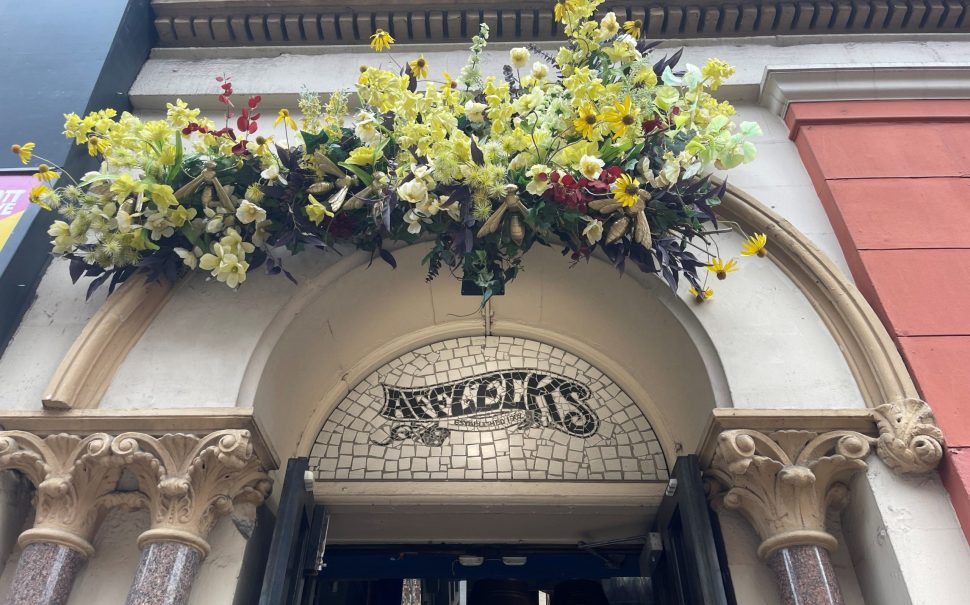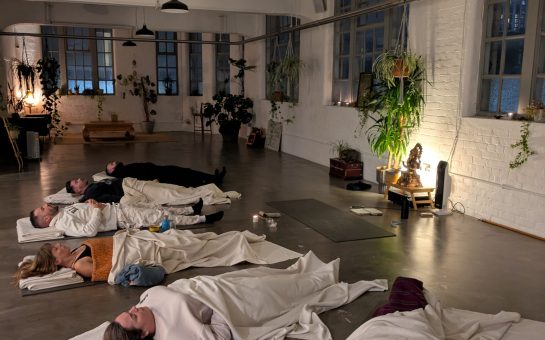Despite being a city with an average of 152 days of rainfall a year, Manchester has been enjoying an unusually long spell of sunshine.
And according to ONS data, the UK’s sunny weather has boosted the retail industry: apparently businesses have had a spring in their step, making hay while the sun shines.
But does this hold true for retailers in Manchester?
We took to the streets of the Northern Quarter to ask people in the industry whether the sun had indeed been shining on the sector.
For Freya McGreevy of GRIN, the forecast seemed closer to cloudy with bursts of sunshine.
“We experienced the opposite to be honest. It was a really quiet period, following a quiet Christmas,” she said.
Based in Affleck’s Palace on Church Street, GRIN sells vintage clothing and accessories.
“We haven’t noticed a big increase in sales, if anything we’ve had to reduce the number of shifts for staff,” said the assistant manager.
The data from the ONS’ most recent release showed that the UK’s retail sales between January and March increased at the fastest rate (1.6%) in four years.
When compared to the same time period last year, sales rose by 1.7%.
March’s good weather reportedly boosted sales, according to clothing and outdoor retailers that spoke to the ONS, with key sectors for growth including clothing stores – the highest – and second-hand goods stores, which includes antiques and auction houses
Freya pointed to changes in the way that consumers shop.
“We’ve noticed that accessories sales have increased,” said Freya.
“It feels like people are looking to style the same outfit in different ways. It’s like they want to treat themselves without spending lots of money.”
And shoppers seem to agree.
Manchester resident Amber tries to be savvy with her spending: “I tend to buy things that go with a lot of different things, more versatile pieces.”
“I try not to buy too many clothes because things are so expensive,” said the 31-year-old.
“Everything costs more money now.”
Every cloud has a silver lining however, and walking deeper into the Northern Quarter, the picture was indeed brighter.
“I do think things are getting better,” said Max Armstrong, from LANX.
The Northern footwear company was established in 2018, selling handmade brogues and boots.
“We’ve had solid sales and the company’s doing well. Our in-store sales weren’t the best last quarter, but online sales are doing insanely well.”
The ONS measures in-store and online sales, the latter of which has enjoyed a modest increase.
“Our walking boots did particularly well in January, after a pretty positive Christmas period,” said the store manager.
He referenced a recent Liberal Democrat campaign to get consumers to buy from UK shops.
“We’re a UK brand, which I think has been in everyone’s mind recently. People want to buy British.”
Clearly, retailers are having varying experiences in Manchester.
It’s also worth noting that the ONS data was measured over the first quarter of the year, before changes to employer national insurance contributions (NICs) kicked in.
On 6th April, the rate of employer contributions increased from 13.8% to 15%, and the threshold at which businesses start to pay the tax on employees’ salary decreased.
And retailers are not happy about being left out in the rain.
The British Retail Consortium’s recent survey showed that 70% of retail HR directors think that the changes to NICs will have a negative impact on their business.
A further half suggested that reductions in headcount would be necessary.
“March offered glimmers of hope for retailers… But beneath these green shoots, discretionary spending remains under significant strain,” said Nicholas Found at Retail Economics.
“With consumers bracing for a fresh wave of rising household bills, geopolitical tensions weighing on confidence and budget-related costs kicking in, retailers face an uphill battle to protect margins, sustain investment and navigate an increasingly complex trading environment.”
Perhaps this is just the calm before the storm.




